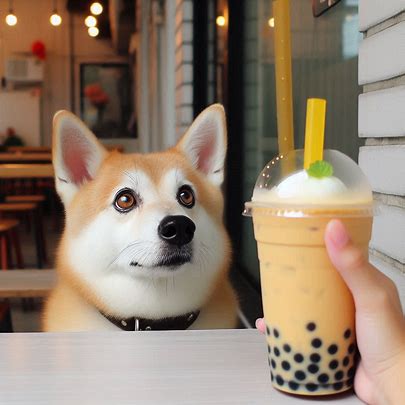
Boba tea, also known as bubble tea, has taken over cafes and social feeds everywhere. With its chewy tapioca pearls and sweet milk base, it’s no surprise that many pet owners are tempted to offer a sip or a pearl to their furry friends. But is this trendy treat actually safe for pets like dogs and cats?
The answer is more complicated than a simple yes or no. While bubble tea might seem harmless, many of its ingredients can cause digestive issues or worse in animals. Pet safety should always come first, no matter how eager they are for a taste. Some sites, such as Boba Taiwan, highlight the love people have for boba culture, but it’s important to remember that what’s fun for humans isn’t always healthy for pets.
What’s Really in Boba Tea?
To understand why boba might not be safe for pets, it helps to know what goes into a typical cup. The main ingredients usually include brewed tea (black or green), milk or cream, sweeteners, and tapioca pearls. Some versions may also have fruit syrups, jellies, or even popping boba filled with juice or artificial flavorings.
Tea itself contains caffeine, which is toxic to both dogs and cats. Even small amounts can cause restlessness, rapid heart rate, vomiting, and seizures. The milk used in boba is another concern, especially for adult cats and dogs who often struggle to digest lactose. Add to that the sugar content, which can lead to obesity, tooth decay, and long-term health problems.
The Trouble with Tapioca Pearls
Tapioca pearls may look cute and chewy, but they are not safe for pets. Made from cassava root starch, these pearls offer no nutritional value to animals. Worse, their gummy texture and size make them a choking hazard, particularly for smaller pets. There have even been reports of intestinal blockages in dogs who ate too many pearls at once.
Another hidden issue is how the pearls are prepared. Many are soaked in sugary syrups or artificial flavors. These additives can be harmful and difficult for animals to process, especially in large amounts or over time.
Common Reactions in Pets
If a pet accidentally consumes boba tea or its ingredients, the symptoms can vary based on what they ingested. Here are a few common reactions:
- Diarrhea or upset stomach
- Vomiting
- Restlessness or hyperactivity (from caffeine)
- Lethargy or lack of appetite
- Difficulty breathing (if choking occurs)
If you notice any of these signs after your pet has had a taste of bubble tea, contact a vet right away. The sooner they receive care, the better the outcome.
Safer Alternatives for Your Pets
You don’t have to exclude your pet from snack time completely. Instead of sharing your boba drink, try making a pet-friendly version that’s fun and safe. For example, chilled bone broth served with soft, chewy treats can mimic the texture of boba. You can also freeze fruit like blueberries or watermelon balls as cool, hydrating snacks.
Another option is making your own pet gel treats at home using unflavored gelatin and natural fruit purée. These can be cut into small pieces and enjoyed as a “boba-style” reward. Always use ingredients that are safe for animals and avoid adding sugar, dairy, or caffeine.
When It’s Okay to Share (and When It’s Not)
If your pet sneaks a lick of your bubble tea, don’t panic. A small taste may not cause lasting harm, but it’s never a good idea to intentionally share these drinks. Animals have very different digestive systems, and even ingredients that seem harmless to humans can have negative effects on pets.
The best rule? If you’re ever unsure about whether a human snack is safe, don’t share it. Stick with vet-approved treats made specifically for your furry friend.
READ ALSO: Alternative Food Diet for Pets
Final Thoughts
Boba tea might be your go-to drink, but it shouldn’t become your pet’s guilty pleasure. With so many ingredients that can upset their system or pose health risks, it’s just not worth the risk. Instead, create safe, pet-friendly alternatives that let you both enjoy treat time together, without a trip to the vet.

